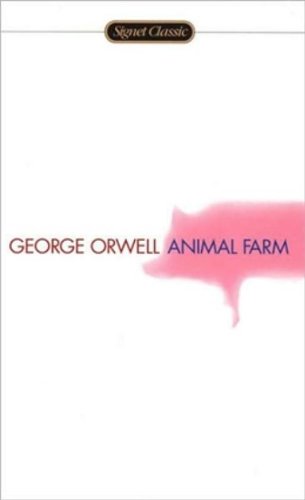All Nonfiction
- Bullying
- Books
- Academic
- Author Interviews
- Celebrity interviews
- College Articles
- College Essays
- Educator of the Year
- Heroes
- Interviews
- Memoir
- Personal Experience
- Sports
- Travel & Culture
All Opinions
- Bullying
- Current Events / Politics
- Discrimination
- Drugs / Alcohol / Smoking
- Entertainment / Celebrities
- Environment
- Love / Relationships
- Movies / Music / TV
- Pop Culture / Trends
- School / College
- Social Issues / Civics
- Spirituality / Religion
- Sports / Hobbies
All Hot Topics
- Bullying
- Community Service
- Environment
- Health
- Letters to the Editor
- Pride & Prejudice
- What Matters
- Back
Summer Guide
- Program Links
- Program Reviews
- Back
College Guide
- College Links
- College Reviews
- College Essays
- College Articles
- Back
Animal Farm by George Orwell
Now, when I think of a book review, I think of chapter by chapter emotion and how this causes emotional change in the reader, or the overall quality of the book and the opinion of the reviewer; however, I didn't want to do that. I decided to relate the book, Animal Farm to a specific topic and show how the book proves my point. Here's what I have:
A leader can be good and bad, and they determine the route a culture takes. Leaders have the responsibility of creating a fair and united society. In Animal Farm, George Orwell portrays the pigs as both good and bad leaders because they have a competitive, shrewd, and disciplined nature.
In the book, the pigs show how they compete with one another and others. For instance, the animals unite—under leadership of pigs—to resist Mr. Jones. Also, they fight against Frederick, and his men, who try to take the farm. Although they did not win in protecting the windmill, they try to stop the men to save their home. Furthermore, the pigs’ competitiveness can be a bad thing. Napoleon gets rid of Snowball in order to have sole authority over the farm without having to fight Snowball for the favor of the animals. These details suggest that pigs have competitive personalities to save what they originally fight for, but also to gain power.
Other than having a competitive spirit, the pigs have intelligence. They teach themselves how to read and write; they try to teach other animals how to read and write (although unsuccessfully). Snowball, using his knowledge, creates plans for a windmill that will lessen the workload of the animals, and will benefit them in the long run; however, Napoleon and Squealer use their knowledge, and the fact that the other animals were illiterate, to deceive the community. Moreover, they change the commandments faintly (to not bring too much awareness to the animals) to gain what they desire. These details insinuate the leaders have extensive understanding to benefit the farm, but also to covertly get what they want.
Among other characteristics, the pigs enforce their laws. When first written, the commandments enforce a just and equal community. This helps unite the animals together under central laws that they all agree with; however, the pigs change these commandments to further their luxuries, and power over the animals; the pigs stop allowing the animals to sing Beasts of England, the song that urges the animals to rebel at the start. They take this freedom away from the animals to prevent them from wanting to riot, and further the control over the animals. These elements allude that pigs have a disciplined nature to enforce laws that aid the farm, but also to strengthen their own rule.
The leaders in Animal Farm compare and contrast the two types of leaders that come into power. Leaders have a big role to play in the development of the community. A leader can have both good and bad characteristics, and never will there be a perfect leader; however, every leader makes good decisions and bad ones, but when they have the prosperity of the populace in mind, rather than their own advancement, the leader will promote a just and equal society.
Similar Articles
JOIN THE DISCUSSION
This article has 0 comments.

